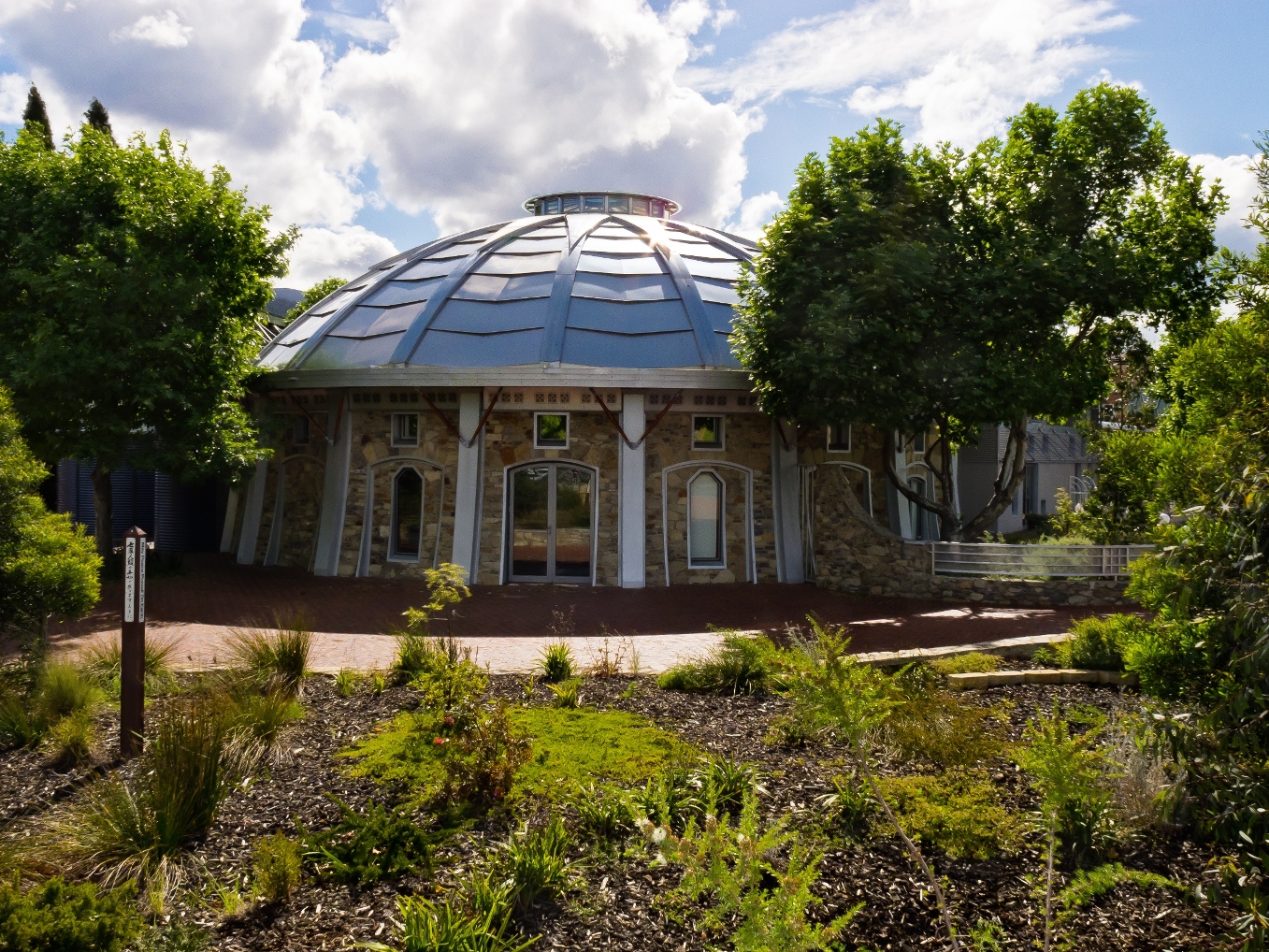
International and Australian speakers addressed “the ethical responses to climate change” at a conference held at the Baha’i Centre of Learning for Tasmania this month.
The annual conference of the International Environmental Forum (IEF) took place at the Baha’i Centre of Learning for Tasmania in Hobart, a building that has won worldwide attention because of the sustainability of its design.
A keynote speaker was Arthur Dahl, the president of the International Environmental Forum, a Baha’i-inspired organisation based in Geneva.
“Around the world, there is growing awareness that there are ethical and moral questions at the root of the climate change crisis,” Dr Dahl told the conference, which was held 10-11 December.
“These are questions of justice and equity that will determine the survival of cultures, ecosystems, and present as well as future generations,” he said.
Dr Dahl said climate change is a global problem requiring the collaboration of all states.
“Climate change may be the common threat that forces governments to work together in their common interests,” he said.
A distinctive feature of the conference was that it brought together thinkers from a wide range of perspectives: scientific, activist, religious and artistic.
Peter Adriance, the environmental liaison officer for the Baha’is of the United States, said Baha’i environmental involvement is rooted in three principles:
- nature is a reflection of the Divine
- all things are inter-connected and flourish according to the law of reciprocity
- humanity is one, the fundamental truth shaping our age.
Tony Press, CEO of the Antarctic Climate and Ecosystems Cooperative Research Centre at the University of Tasmania, spoke of the responsibility all of us share.
“We are the first generation with the capacity to see what we’ve done to the planet, to model the future and make choices about it,” Dr Press said.
Al Riebau, principal scientist at Nine Points South Technical, said governments had made significant achievements in recent decades, reducing the impact of acid rain, ozone depletion and air pollution.
“We can’t give up on governments and the political process completely,” Dr Riebau said.
Beyond partisanship
Natalie Mobini, Director of the Office of External Affairs for the Australian Baha’i Community, said many people were understandably disillusioned with the failure of the partisan political system to address complex social challenges such as climate change.
“How can we move beyond partisanship to create innovative governance alternatives that are democratic, non-competitive, and serve the common good?” Dr Mobini said.
Peter Boyer, founder of Climate Tasmania, expressed optimism about the many practical solutions that have emerged to reduce energy consumption and address climate change.
“The tipping point that leads to action may not be as far away as we think,” Mr Boyer said.
Todd Houstein, executive officer of Sustainable Living Tasmania, said individuals could dramatically reduce their energy use by living and meeting their needs locally.
“We may have to do without many things we like, but there is also an opportunity for a more positive, happier and healthier future,” Mr Houstein said.
Gareth Johnston, director of Future Ready, echoed the call to build strong local communities.
“The best insurance is in our local communities – working together and using our capacities,” Mr Johnston said.
Miriam Pepper, secretary of the Australian Religious Response to Climate Change (ARRCC), said climate change was not only a technological problem, but more deeply a spiritual one.
“The language we [faith communities] bring to the discussion is important–we add words like love, compassion and justice into the public sphere,” Dr Pepper said.
Attitudes and skills
Tessa Scrine, a member of the Baha’i Continental Board of Counsellors for Australasia, spoke on how the Baha’i community is responding to climate change by learning to apply Baha’i teachings to serve and transform society.
Ms Scrine said participants in the worldwide Baha’i institute process learn to become protagonists of their own social and economic development, and acquire the attitudes and skills to undertake sustained social action and contribute to the current discussions in society.
“Many other people are also contributing to the processes of integration and transformation in the world, and we look forward to ongoing collaboration with them,” Ms Scrine said.
Dr Arini Beaumaris, a member of the National Spiritual Assembly of the Baha’is of Australia, provided a Baha’i perspective on the ethical and moral capacities required to address climate change: self-evaluation, learning through action, initiative, perseverance, self-discipline, rectitude of conduct, and systematic thinking.
